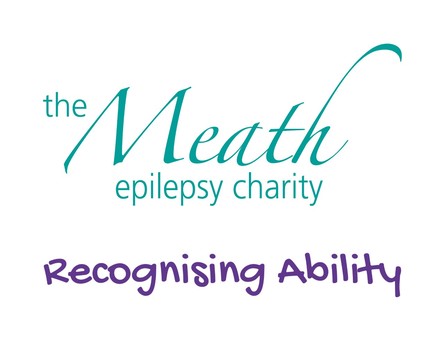about this event
This concert is fundraising for Meath Epilepsy Charity, Godalming and Cranleigh Arts.
Each ticket will include a glass of wine on arrival.
Agata Daraškaite – violin
Magdalena
Loth-Hill – violin
Kay Stephen – viola
George Ross – cello
Mozart String Quartet No 13 in D minor, KV173 (18’)
Allegro ma molto moderato
Andantino gracioso
Menuetto
Allegro
Haydn String Quartet Op 74 No 2 in F Major (25’)
Allegro spiritoso
Andante grazioso
Menuetto - Trio
Presto
Interval
Guillaume Lekeu - Molto adagio sempre cantante doloroso (11')
Robert Schumann String Quartet in A major, Op. 41, No.3 (30’)
Andante espresivo - Allegro molto moderato
Assai agitato
Adagio molto
Finale; Allegro molto vivace
Guillaume Lekeu is a fairly new discovery for us. He was a Belgian composer who died in 1894, a day after his 24th birthday, and who wrote a lot of sorrowful music. This piece is titled Molto Adagio, sempre cantate doloroso, which literally means 'very slowly, always singing, painful’. Lekeu wrote the piece aged 16 and was inspired by the words of Christ in the garden of Gethsemane, which he wrote at the top of the score: "My soul is exceeding sorrowful, even unto death. Matthew XXVI:38” The piece begins and ends like a kind of quiet procession, with a gorgeously plaintive middle section.
Robert Schumann’s String Quartet No. 3 is a piece full of contradictions and unpredictabilities. While very classical in structure and form (Robert diligently studied quartets by Mozart, Haydn and Beethoven for months before embarking on his quartet writing phase), this piece is unmistakably romantic and full of fantasy. Schumann’s favourite rhythmic trick of starting themes on the ‘wrong’ beats of the bar gives his music an agitated and often unstable feeling and there’s an element of this in every movement of this string quartet - but what a rollercoaster of emotions it provides for the four of us and hopefully the audience too!
The music of Mozart and Haydn has always been a staple of our musical diet. These two pieces were written 20 years apart, by a teenage Mozart and an elderly Haydn. Contrary to what you would imagine, the Mozart is the darker, more moody of the two works whilst the Haydn is exuberant and bright.
The first period instrument string quartet to be selected as BBC New Generation Artists, the Consone Quartet is rapidly emerging as one of the most exciting ensembles of their generation.
Celebrated for presenting historically informed interpretations of classical and romantic repertoire, their debut CD - released in 2018 on the French label Ambronay - explored music by Haydn and Mendelssohn and was described by The Strad as an album “that instantly leaps out of the stereo at you as something special.”
Formed at the Royal College of Music in London, the Consone Quartet launched their professional career in 2015, shortly after which they were awarded two prizes at the 2015 York Early Music International Young Artists Competition, including the EUBO Development Trust Prize and a place on the EEEmerging Scheme in France. They went on to become recipient of the 2016 Royal Over-Seas League Ensemble Prize.
The quartet has been enthusiastically received at London’s Wigmore Hall, King’s Place, St John’s Smith Square and St Martin-in-the-Fields, and at the Edinburgh, Cheltenham, Brighton, and King’s Lynn Festivals amongst others. The Brighton Early Music and York Early Music Festivals have been key supporters over the past few years and regularly host the group.
Further afield, the group has been invited to perform at the Philharmonie de Paris and Auditorium de Lyon in France, at the Concertgebouw Brugge, AMUZ and de Bijloke in Belgium, Concerts d'été à St Germain in Switzerland and at other venues across Italy, Austria, Bulgaria, Slovenia. Following a tour to South America in 2018 they will make a highly anticipated North American debut in February 2023.
The Consone Quartet enjoys collaborating with fellow musicians including members of the Hanover Band, Anneke Scott, Gwilym Bowen, Paolo Zanzu, Mahan Esfahani, Justin Taylor, Gillian Keith, Jane Booth, Mary Bevan, and Alexander Rolton. They have previously worked with students of the Royal College of Music and the Royal Welsh College of Music and Drama, and are currently chamber music fellows at the Guildhall School of Music and Drama for 2020/2021.
Summer 2021 saw them launch ‘Barnstorming!’; a series of intimate chamber music concerts, filmed at barns across the UK. The project was generously supported by Continuo Foundation. Further recent and upcoming highlights include a return to the Wigmore Hall, Buxton and Cheltenham Festivals, touring in Japan and the north of England and Scotland, as well as a ‘Consone & Friends’ BBC Radio 3 series from the Dora Stoutzker Hall in Cardiff.
The Meath Epilepsy Charity
The Meath Epilepsy Charity is a specialist care home in Godalming, which supports adults who live with complex epilepsy and disabilities to live as independently as possible. In addition to providing specialist residential care, they also provide a supported living service and welcome day clients. The people who are supported by The Meath are enabled to access a broad range of daily, life enriching activity sessions at their dedicated Skills Centre and the popular High Street Café and furniture up-cycling social enterprise ‘Changing Perceptions’. The Meath recognises ability and is committed to enabling the people they support to lead a fulfilled life.
Statutory funding does not cover the full cost of many vital and life enhancing services on offer to the people they support. The Meath therefore relies on fundraised income to sustain the broad range of services on offer to the very special people they support.
On behalf of the people supported by The Meath, Thank you
